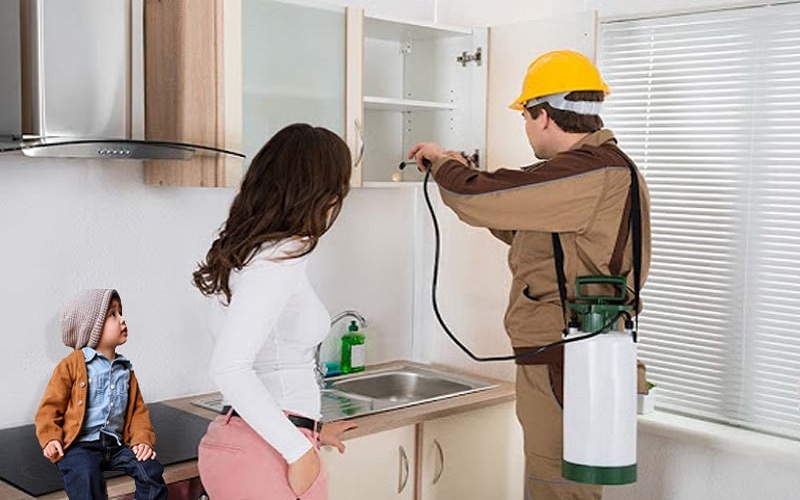
When you go with pest control services, the process will involve investigating your house and providing a customized solution. However, one of the major role of pest control in your house is using chemicals that will keep them away. While the professionals try their best to use safety measures, it is important to understand the harm they pose, especially for children. You should also speak to your pest control company in Belleville and take their advice on the safety measures. They will also help you understand why and how pest control chemicals harm children’s health.
What Are The Types Of Pest Control Chemicals?
Pests manipulate chemical substances, embodying a wide array of substances designed to get rid of or deter pests. These chemical substances are commonly categorized into three principal businesses:
Formulated to goal and dispose of insect pests, including mosquitoes, ants, cockroaches, and termites. Common pesticides consist of pyrethroids, organophosphates, carbamates, and neonicotinoids.
Primarily used to control undesirable vegetation and weeds in agricultural fields, gardens, lawns, and concrete landscapes. Herbicides incorporate energetic substances consisting of glyphosate, 2,4-D, dicamba, and atrazine.
Designed to remove rodents, including rats and mice, that pose fitness risks and harm to belongings. Rodenticides may also contain anticoagulant compounds, which include warfarin, bromadiolone, or brodifacoum.
Why Are Pest Control Chemicals Dangerous?
Pest control chemical compounds are powerful substances designed to kill pests. However, they can also damage human beings, especially kids, because of their weak immune systems.
The truth is, the stuff in those pest spray bottles and cans is powerful. It has to be used to kill bugs and rodents. Many of the active ingredients are known to have toxic effects like disrupting hormones, damaging nerves or DNA, and maybe causing cancer. Just looking at the warning labels is scary.
How They Harm The Kids?
Children can ingest chemicals that are put there to drive away pests, mistaking them for food or drink. The kids do that a lot with anything they get around them.
Inhaling fumes from pest control sprays or powders can cause serious problems in your child’s lungs and airways, causing respiratory problems.
Direct contact with chemicals may cause skin irritation or skin diseases, especially in young children, as they have sensitive skin.
How To Protect Your Child From Getting Infected?
There are some things you can do to keep your kid safe from harm. Rinse fruits and vegetables under running water. It is greatly advised that this could help reduce the amount of pesticides left on the surface.
Store medicines safely to minimize risk to children. Keep these common household disinfectants out of the reach of children, and never put toxic products in containers that could be mistaken for food or drink.
Read pesticide labels first. Follow the instructions on the label before using the product. For example, you can pass on pesticides used to prevent fleas and ticks on pets.
Never use bug bombs or heavy sprays of insecticides. Use chemical-free pest control or a completely non-toxic method for common problems in the home and garden. If chemicals are needed, the AAP recommends using less toxic chemicals such as boric acid in cracks or bait and gel areas to reduce exposure of children.

